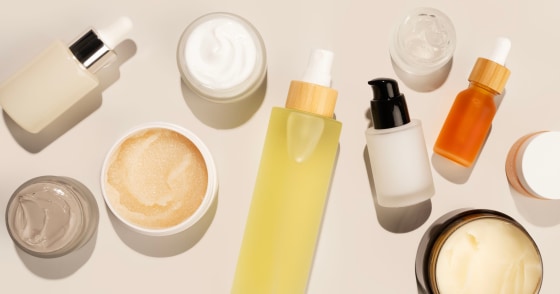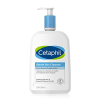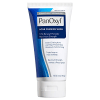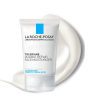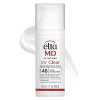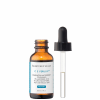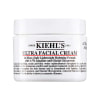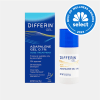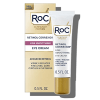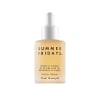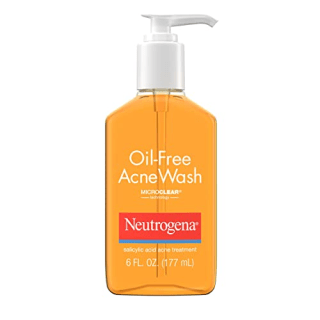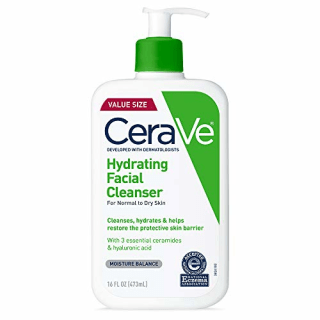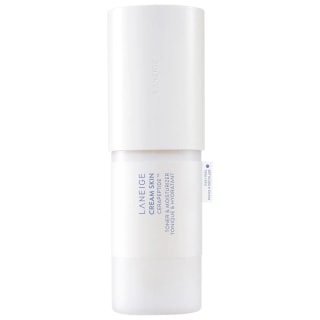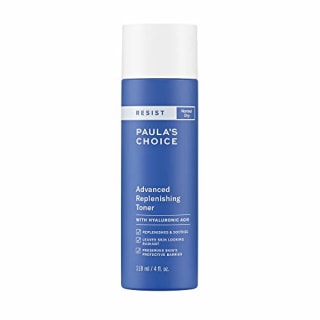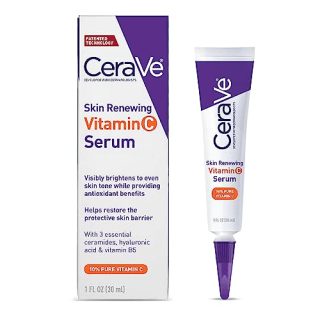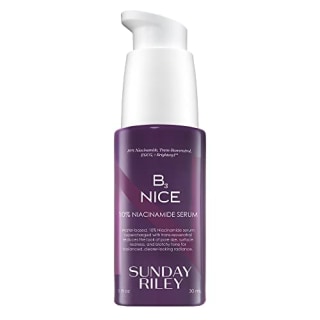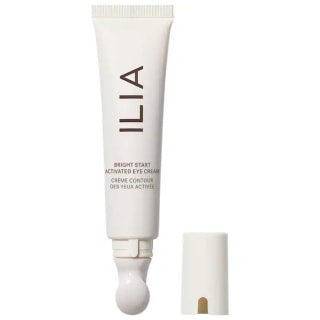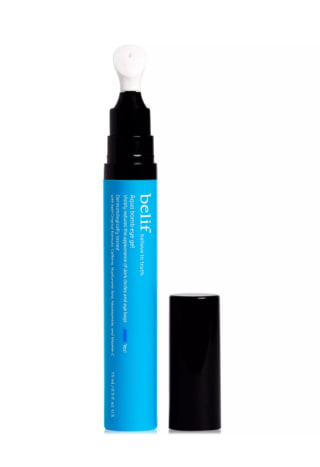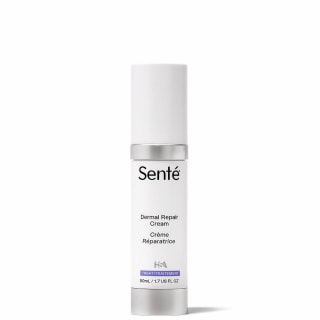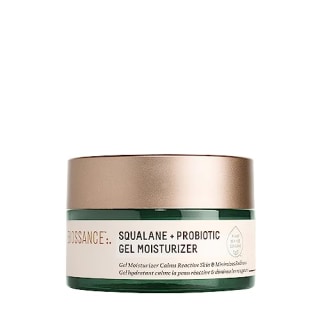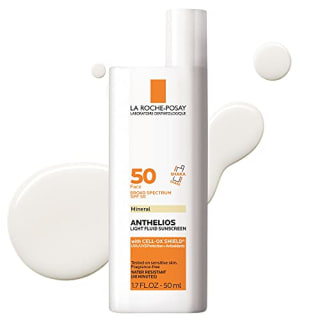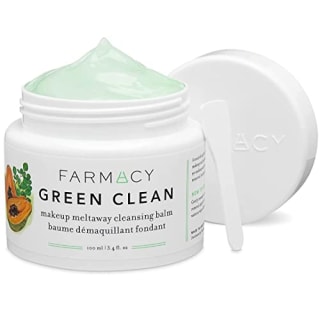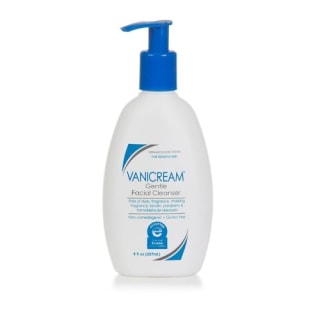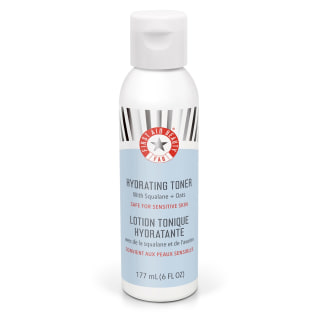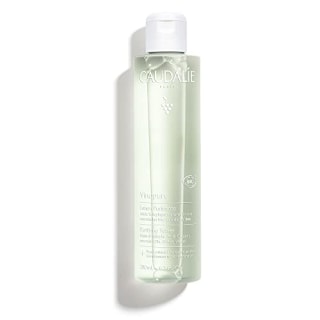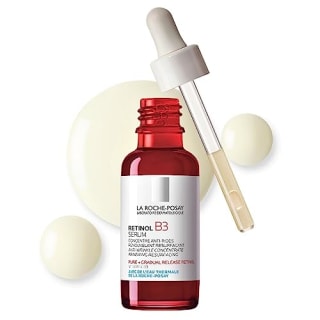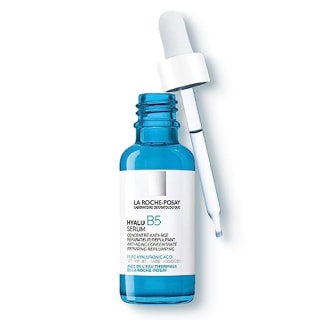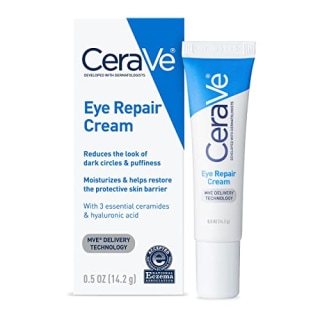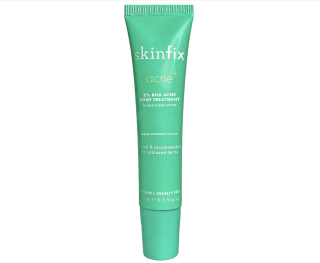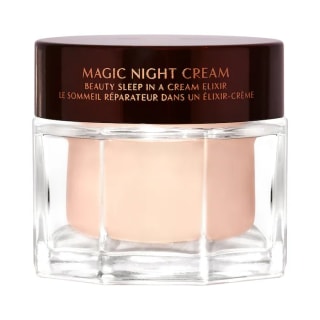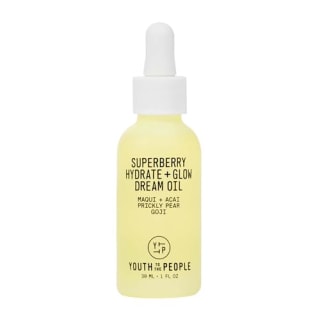Skin care — and specifically the art of building a skin care routine — can be a form of self-care. But with hundreds of products on the market, figuring out the correct way to layer serums, moisturizers and eye creams can be tricky. To help you determine the correct order to apply your products for both morning and night, I spoke to five dermatologists, plus got their recommendations for the best items in each category.
SKIP AHEAD How to build a skin care routine | Morning skin care routine | Nighttime skin care routine | How to shop for skin care products | Why trust NBC Select?
How to build a skin care routine in 2025
When building a skin care routine, the general rule of thumb is to go from lightest to heaviest (in consistency), gradually layering on heavier products, like creams and lotions, as you go. This is because the skin absorbs lightweight products quickly, allowing you to layer on more products easily, according to board-certified dermatologist Dr. Hadley King.
Below, I’m outlining dermatologist-recommended steps to creating an effective skin care routine along with their recommendations for each step. Even though experts I spoke to say that piling on extra products or following an extensive, multistep skin care routine does not actually yield more benefits, we got their insight on some optional steps, including how to incorporate devices like an LED mask or gua sha.
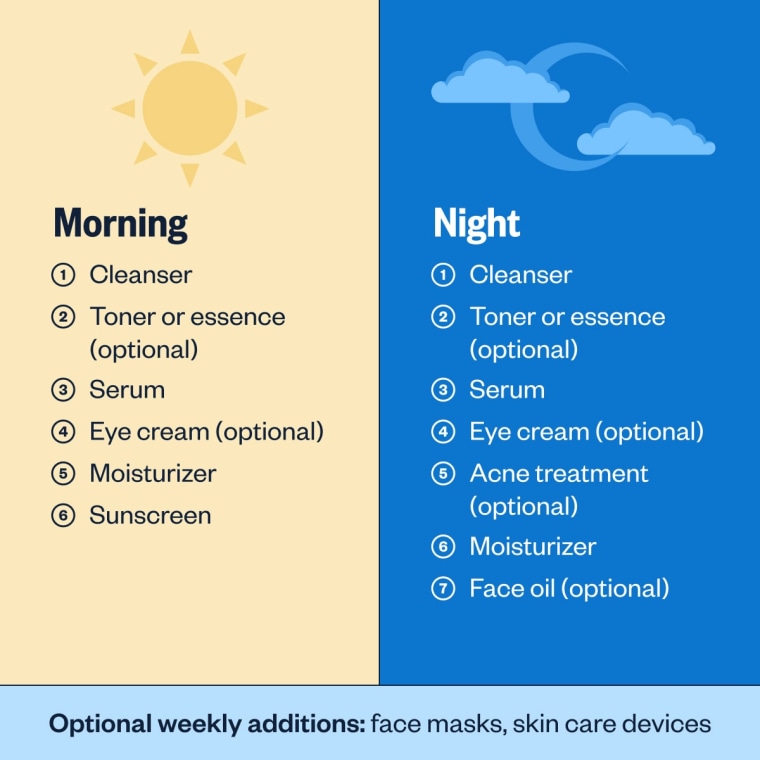
Want more from NBC Select? Sign up for our newsletter, The Selection, and shop smarter.
Morning skin care routine
For many people, your morning routine will look similar to your nighttime routine. However, certain products, like face sunscreen, are most beneficial in the morning because they set you up for your day by protecting you from environmental factors.
In the morning, experts recommend using a cleanser, followed by a serum, moisturizer and sunscreen — in that order. When it comes to adding toners or eye creams to your morning routine, you can incorporate them if you choose, but they won’t really enhance the efficacy of a basic skin care routine in a major way, according to our experts. I’ll go into more detail on each step and what to know about the best products, below.
Step 1: Cleanser
Facial cleansers are a crucial first step in any morning routine; they can remove dirt, oil and debris that your skin may have collected overnight — which isn’t possible with just a splash of water, says board-certified dermatologist Dr. Michelle Henry. By cleansing your skin, you’re also priming it so that it can absorb future products, says Henry.
When it comes to choosing the right cleanser for your skin, you’ll want to consider a formula’s consistency:
- Dry skin: If you have this skin type, creamy cleansers are a great option since they tend to have more oils that help moisturize the skin, according to Dr. Heather Woolery-Lloyd, a board-certified dermatologist in Miami.
- Oily/acne-prone skin: For those with this skin type, you may want to incorporate a gel or foaming wash because they can get deep into pores and remove any debris buildup, says Woolery-Lloyd.
- Sensitive skin: If you have sensitive skin, consider using a creamy or suds-free cleanser. Foaming cleansers can be irritating since they have stronger surfactants, which are chemicals that help wash away oils, according to Woolery-Lloyd.
Best for sensitive skin: Cetaphil Gentle Skin Cleanser
- Non-irritating
- Can use on the body
- Non-drying
- Nothing to note at this time
This creamy, hydrating formula does exactly what you’d want a cleanser to do: remove debris and excess oils from your skin, according to Woolery-Lloyd. Ingredients like niacinamide and glycerin help reinforce your skin barrier’s moisture levels, according to the brand. Protecting the skin barrier is especially key during the cleansing step because it protects your skin from losing too much water, while also keeping the barrier strong to defend against allergens in the air, says Woolery-Lloyd. It’s suitable for most skin types since it’s hypoallergenic, fragrance-free and noncomedogenic, so it shouldn’t cause unwanted breakouts or clog pores, according to the brand.
Best for oily/acne-prone skin: Neutrogena Oil-Free Acne Wash
- Available in multiple sizes
- Gentle formula
- Calms acne
- Can be drying
The salicylic acid in this oil-free facial cleanser makes it a great option for oily and acne-prone skin, says Woolery-Lloyd. (Salicylic acid is a key ingredient that helps treat and prevent breakouts.) Aside from helping with acne, it also unclogs pores and removes any excessive oil and dirt that has built up overnight.
Best for dry skin: Cerave Hydrating Cleanser
- Non-drying
- Creamy formula
- Available in multiple sizes
- Not for oily skin
I use this fragrance-free cleanser both morning and night, and I find that it’s great for dry, eczema-prone and sensitive skin. The cleanser has ceramides to help maintain the skin’s natural barrier and hyaluronic acid to add moisture, according to the brand. It’s also non-foaming, which helps prevent the skin from drying out, experts told us.
Step 2 (optional): Toner or essence
After cleansing, the next (optional) step is to add in a toner or essence. Toners are liquids with a high water content that typically have humectants (to hydrate the skin) along with active ingredients like vitamin C (to brighten and protect the skin) and beta hydroxy acids, like salicylic acid, (to help exfoliate), according to King. They help complete the cleansing process and refresh your skin.
Essences are similar to toners because they’re equally as lightweight, however they primarily focus on hydrating and plumping the skin using ingredients like hyaluronic acid, vitamin E, ceramides and squalane, according to experts in our guide to the best facial essences.
To apply, you can either pour some toner on a cotton pad and tap that into your face, or you can pat a toner or essence directly onto your skin using your fingertips. After applying, you should not wash your face again like you would with a cleanser. Toners and essences will absorb quickly and prep the skin for future products.
All of this is to say that experts do not consider this step a necessity. If you want to use one and have “normal” skin, consider using a formula with antioxidants; if you have dry or sensitive skin you may want to use a hydrating and gentle toner instead. Those with acne-prone or oily skin should opt for an exfoliating toner with ingredients like salicylic acid, glycolic acid or lactic acid since these chemical exfoliants penetrate the skin and remove any debris buildup, says Woolery-Lloyd. Though, you shouldn’t use an exfoliating formula twice a day — it can dry out your skin and cause irritation, according to experts I spoke with.
Best hybrid toner: Laneige Cream Skin Toner & Moisturizer
- Refillable
- For AM and PM use
- Suitable for all skin types
- Higher price point
This expert-recommended toner is great for dry and sensitive skin types because it has ceramides that help hydrate, repair and support the skin barrier. It also has white leaf tea, which is rich in amino acids, to soothe your skin, according to the brand.
Best multitasking toner: Paula’s Choice Resist Advanced Replenishing Toner
- Reinforces skin barrier
- Improves uneven tone
- Minimizes fine lines
- Dispensing can be messy
Another expert-recommended toner is this milky option from Paula’s Choice. It has hydrating ingredients like hyaluronic acid and primrose oil to combat dryness and retain moisture. It’s especially helpful after washing your face since it continues cleansing the skin, while also adding back in lost moisture from the previous step. It also has antioxidants to fight external aggressors like UV light and protect the skin from environmental damage, according to the brand.
Step 3: Serum
After cleansing, experts recommend applying a serum. Serums are lightweight liquids that typically have high concentrations of specific ingredients to help your skin function in different ways (depending on the ingredient). For example, you may find serums with high concentrations of hyaluronic acid for hydration, niacinamide for even tone and texture, vitamin C for protection and brightening or vitamin E for protection and moisture.
Certain ingredients, like vitamin C, are best in the morning, because of how they work with other ingredients to set you up for the day ahead of you. (Vitamin C helps protect the skin from free radicals, but it also helps your sunscreen perform better, according to Woolery-Lloyd.)
You’ll want to apply your serum by gently spreading it across your face in a patting motion or you can massage it very gently. They typically have a lightweight texture that spreads easily and absorbs quickly, says King.
Best vitamin C serum: Cerave Vitamin C Serum
- Budget friendly
- Includes ceramides
- Closed packaging
- Small size
This vitamin C serum, which comes recommended by Woolery-Lloyd, works to restore the skin barrier and hydrate your skin. Vitamin C also protects the skin from environmental aggressors like pollution, helps with brightening and evening discoloration, and improves collagen production, experts say. It’s fragrance-free, noncomedogenic and is suitable for all skin types.
Best niacinamide serum:Sunday Riley B3 Nice 10% Niacinamide Serum
- Minimizes pore appearance
- Improves uneven tone
- Suitable for all skin types
- Higher price point
This vitamin B3 serum, also known as niacinamide, improves the tone and texture of the skin as well as supports the skin barrier and prevents water loss, according to our experts. The serum, which has a 4.7-star average rating from over 900 reviews at Sephora, is suitable for various skin concerns, including fine lines and hyperpigmentation. Apply it to your face, neck and décolleté after cleansing and prepping the skin, according to the brand.
Best multitasking serum: Skinceuticals Vitamin C E Ferulic Serum
- Potent formula
- Improves dull skin
- Minimizes fine lines
- Higher price point
- Strong odor
Board-certified dermatologist Dr. Karen Kagha recommends this fast-absorbing serum because it protects, firms and brightens the skin. It has both vitamins C and E, and ferulic acid, which brightens the skin, protects it from outside aggressors and neutralizes free radicals (molecules that damage the skin by weakening it), according to the brand.
Step 4 (optional): Eye cream
Eye creams are moisturizers made specifically for the eye area that help brighten, depuff or smooth fine lines, experts say. They typically have a lighter consistency than moisturizers, so you should apply them before a day cream or SPF.
The best way to apply an eye cream is to gently pat the product around the eye from the innermost to the outermost areas. When done right, it helps moisturize the thinnest and most delicate part of your skin, though my experts say it’s not a necessity when building out a morning skin care routine.
Best brightening eye cream:Ilia Bright Start Retinol Alternative Brightening Eye Cream
- Moisturizing
- Safe for all skin types
- Primes under eyes for makeup
- Has light reflecting pigment
This NBC Select-staff favorite eye cream has a plant-based retinol alternative to smooth the under-eye area. Compared to traditional retinol, this alternative is safe for sun exposure — so you can use it during your morning routine — and it also has a cooling tip to help aid in depuffing the area, according to the brand. It has a 4.3-star average rating from over 890 reviews at Sephora.
Best depuffing eye cream: Belif Aqua Bomb Depuffing Eye Gel
- Non-sticky
- Safe for all skin types
- Soothing
- Takes a second to absorb
This is one of my favorite hydrating eye creams to use in the morning because it has a cooling ceramic tip that reduces any puffiness I wake up to. The tip also helps get every crevice of my under eye coated in the gel mess-free.
Step 5: Moisturizer
Next up: moisturizers. They help lock in all the products you previously applied and keep the skin barrier healthy by hydrating it, says King. Moisturizers come in different forms including lotions, creams, gels and ointments; daytime moisturizers are typically lighter in weight than evening ones, experts say.
If you have dry skin, you tend to lack sebum (an oily substance our skin produces). That’s why a thicker cream may be your best option since they are typically oil-based and can make up for any lack of natural oils, says Woolery-Lloyd. People with oily and acne-prone skin may want to consider a gel moisturizer since it’s water-based and will draw moisture to your skin without adding more oil or having the oil sit on top of the face.
Moisturizers usually have one or a combination of the following moisturizing groups, which you’ll often see listed on bottles: humectants, emollients and occlusives. Humectants hydrate the skin, emollients support the skin barrier and occlusives lock in moisture, says King.
Best moisturizer overall: La Roche Posay Toleraine Double Repair Face Moisturizer
- Suitable for all skin types
- Soothing
- Repairs skin barrier
- Small size
This lightweight cream, which comes recommended by Woolery-Lloyd, has ceramides, niacinamide, glycerin and thermal water, which all help hydrate and moisturize the skin, according to the brand. Thermal water is especially good for those who have sensitive skin, including eczema, and a more delicate skin barrier, says Woolery-Lloyd.
Best for sensitive skin: Senté Dermal Repair Cream
- Improves rosacea
- Minimizes fine lines
- Repairs skin barrier
- Higher price point
This lightweight Senté facial moisturizer is a current favorite of Kagha’s. A great option for sensitive skin, this formula not only hydrates the skin, but the green tea extract in it also helps calm any irritation and reduce redness, according to the brand.
Best gel cream: Biossance Squalane + Probiotic Gel Moisturizer
- Cooling
- Reduces excess oil
- Lightweight consistency
- Can be messy to scoop
This NBC Select staff-favorite gel cream ranked in our top 10 from over 100 moisturizers we tested because of its lightweight, gentle and calming the formula. It works for all skin types, including acne-prone, dry and sensitive skin, according to NBC Select staff who tried this moisturizer. In my experience, this cream provides the same amount of hydration as a thick, rich cream, but without feeling heavy on the skin or clogging pores.
Step 6: Sunscreen
Sunscreen should be the final step in your morning skin care routine to protect your skin against harmful UVA and UVB rays that can cause cancer. (UVA rays can prematurely age your skin via wrinkles and dark spots, while UVB rays can cause sunburns, according to the American Academy of Dermatology Association.)
Face sunscreens come in mineral or chemical form — one isn’t “better” than the other and choosing one comes down to a matter of personal preference, according to my experts. Mineral sunscreens sit on the surface of the skin and reflect UV rays, while chemical sunscreens absorb and filter out UV light.
You’ll also want to make sure to pick a sunscreen with at least SPF 30 that has broad-spectrum protection (which protects you against both UVA and UVB rays). Apply a nickel-sized dollop to the face in the morning before putting on makeup, says King.
Best sunscreen overall: Elta MD UV Clear Face Sunscreen SPF 46
- Lightweight
- No strong scent
- Natural finish
- Pump can be difficult
This broad-spectrum SPF is suitable for all skin types and is a favorite among dermatologists, says Woolery-Lloyd. The sunscreen has two active ingredients that combine the benefits of both chemical and mineral sunscreens: titanium oxide, which you’ll typically see in mineral sunscreen, and octinoxate, which is one of six chemical filters.
The combination creates a cosmetically elegant formula that doesn’t leave behind a white cast (which is common with chemical-only sunscreens) and helps reflect both UVA and UVB rays, according to EltaMD. The formula also has niacinamide to help even tone and texture, and it can reduce redness and discoloration in people with skin conditions like rosacea, according to the brand. If you are worried about a white cast, this formula also comes in a tinted version.
Best tinted sunscreen: La Roche Posay Mineral Anthelios Tinted Sunscreen SPF 50
- Matte finish
- Fast absorbing
- Suitable for all skin types
- One universal shade
This tinted sunscreen is suitable for all skin types and complexions including dark skin tones, according to Henry. It protects the skin from UV exposure and also hydrates it with ingredients like vitamin E, a humectant that absorbs water, and dimethicone, an emollient that retains water, says Henry. This broad-spectrum formula has SPF 50 and is water-resistant for 40 minutes.
Nighttime skin care routine
The goal of a nighttime skin care routine is to clean your skin from any product or debris that piles up throughout the day and to add hydration that will last you through the night. Nighttime routines also help promote cell turnover (which replaces dead skin cells with healthy ones) and stimulate collagen production (to maintain the structure of your skin by keeping it firm), according to Henry.
At night, experts recommend including cleanser, serum, eye cream and moisturizer, which is very similar to an ideal morning routine, minus the SPF application. You can also add in a toner, acne treatment, face oil, and/or special devices or masks if you’re looking to enhance your routine. However, the more products you add in, the more risk there is for irritation, says Kagha.
Step 1: Cleanser
Cleansers play a major role at night: They remove makeup, sunscreen, dirt, oil and products that have accumulated throughout the day from your face and neck, leaving your skin clean. At night, you may even want to double cleanse. That’s the process of washing your face twice — first with an oil-based cleanser, followed by a water-based cleanser. The oil-based cleanser breaks down products on the surface of your skin, including makeup and sunscreen, while the water-based cleanser removes leftover residue, pollutants, dirt, debris and excess oil, according to King.
Cleansers come in different formulations, including liquids, bars and balms. If you use a medicated cleanser in the morning, you’ll want to consider a gentler alternative (one that is free of exfoliating or drying ingredients) at night because it may be too harsh on your skin, according to experts.
Best cleansing balm: Farmacy Green Clean Cleansing Balm
- Gentle formula
- Effective on tough eye makeup
- Strong scent
Farmacy makes some of our favorite cleansing balms including an NBC Select Wellness Award winner and this NBC Select-staff favorite — Farmacy Green Clean Cleansing Balm. Dr. Sejal Shah, a board-certified dermatologist and founder of SmarterSkin Dermatology in New York City, recommends this option for those with normal to oily skin types. The balm includes papaya enzymes to gently exfoliate, glycerin to hydrate the skin and turmeric extract to soothe it. It also removes makeup while cleansing the skin, making it a great nighttime product.
Best for dry/sensitive skin: Vanicream Gentle Facial Cleanser
- Noncomedogenic
- Has NEA Seal of Acceptance
- Soap-free formula
- Nothing to note at this time
This cleanser comes recommended by experts in our guide to the best cleansers for dry skin because it’s gentle, moisturizing and free of common irritants. Reviewers say it helps soothe the skin and ease any dryness they experience, regardless of whether or not it’s a result of naturally dry, irritated skin or medications that cause excessive dryness.
Best for oily/acne-prone skin: Panoxyl Acne Foaming Wash
- Maximum strength
- Prevents breakouts
- Safe for face and body
- May be drying
- Can stain linens
This foaming face wash for oily and acne-prone skin uses benzoyl peroxide to treat acne, according to Woolery-Lloyd. Since this product has the highest concentration of benzoyl peroxide available without a prescription, you should only use it once a day — otherwise, it can be drying or irritating. To combat these concerns, the formula also has ingredients like glycerin, which is a hydrating humectant, according to the brand.
Step 2 (optional): Toner or essence
If you are looking to further hydrate or exfoliate your skin, you may want to consider a toner. Experts say this is a completely optional step, but it is great for providing your skin with another round of ingredients to help cleanse and prep the skin for future steps. If you decide to use an exfoliating toner in the morning, consider a hydrating essence at night and vice versa.
Best hydrating toner: First Aid Beauty Hydrating Toner with Squalane + Oats
- Supports skin health
- Plumps skin
- Reduces redness
- Not in other sizes
This toner is suitable for all skin types including sensitive skin. The main ingredient is oats, which are very soothing and also offer anti-inflammatory benefits, according to Woolery-Lloyd. Plus, it has honey, which is a humectant with antioxidants to moisturize the skin, according to the brand. After drying your face, pat this milky toner into your skin with your fingers (or via a cotton pad) and let it seep into your skin.
Best exfoliating toner: Caudalie Vinopure Natural Salicylic Acid Pore Minimizing Toner
- Soothing
- For AM and PM use
- Mattifying finish
- Not in other sizes
This salicylic acid toner helps exfoliate the skin, reduce excess oil and minimize the appearance of blackheads and pores, according to the brand. To combat some of the dryness that using this may cause, it also has grape and rose water in its formula to calm irritation and hydrate the skin, according to Caudalie.
Step 3: Serums (including retinol)
Serums are especially great to use at night since they’re reparative and restorative, says Henry. Common nighttime formulas have hyaluronic acid to hydrate the skin or chemical exfoliants, like glycolic and lactic acid, to penetrate your pores, remove dead skin cells and unclog pores, according to my experts.
Other popular serum formulas have retinol, which can minimize the appearance of fine lines and increase collagen production. However, retinol is highly irritating when mixed with other actives, so our experts recommend avoiding it when also applying vitamin C, glycolic or lactic acid. Overall, retinols thrive at night because they benefit from the growth environment in which our bodies relax, says Henry. It also increases your chances of sun damage and sunburn, which is why it’s typically recommended for nighttime use.
Best retinol serum: La Roche-Posay Pure Retinol Face Serum with Vitamin B3
- For face and neck
- Non-comedogenic
- Improves dull skin
- Has added fragrance
- Nighttime use only
- Not pregnancy safe
If you want your retinol in serum form, this La Roche-Posay formula is recommended by Kagha. Not only does it use retinol to combat fine lines, but it also has hyaluronic acid for hydration and niacinamide to help reduce any potential irritation, according to the brand. Apply it to your face once or twice a week at first and gradually increase your usage.
Best hyaluronic acid serum: La Roche-Posay Hyalu B5 Pure Hyaluronic Acid Serum
- Hydrating
- Visibly plumps skin
- Allergy tested
- Has added fragrance
To combat any dryness, consider this hydrating serum that is suitable for all skin types and is recommended by Kagha. It combines its namesake ingredient with glycerin and thermal water to give your skin some needed moisture, according to La-Roche Posay. Apply three to four drops to your face and neck, according to the brand.
Step 4 (optional): Eye cream
One of the main functions of eye creams is to hydrate the delicate under-eye area. Since our bodies tend to lose more moisture at night, finding an eye cream to help retain and add moisture to that area is important, according to Woolery-Lloyd.
Best hydrating eye cream: Cerave Eye Repair Cream
- Fast absorbing
- Reduces puffiness
- Good for eczema/sensitive skin
- Nothing to note at this time
This formula, which has hydrating ingredients, including hyaluronic acid, ceramides and niacinamide, is suitable for all skin types, including those with eczema. Apply small dots around the eye and pat until fully absorbed — it should help reduce puffiness and dark circles, according to the brand.
Best for fine lines: Roc Retinol Correxion Line Smoothing Eye Cream
- Non-greasy
- Hypoallergenic
- Safe for daily use
- Retinol can irritate/dry skin
If you want to combine a retinol and an eye cream, this RoC cream is a great option, says Woolery-Lloyd. The retinol works to smooth fine lines, while the niacinamide helps hydrate and improve the tone and texture of your skin. You can also use this in conjunction with a retinol serum because these products will generally affect different areas of your face. You can apply the serum on the face (avoiding the eyes) while the eye cream goes directly on the under-eye area, according to King. If you want to use a retinol eye cream and vitamin C serum, apply the antioxidant serum in the morning and the retinol at night so you can still use both products without using them at the same time and risking irritation, says King.
Step 5 (optional): Acne treatment
If you’re currently dealing with a breakout or are looking to prevent a future one from occurring, you may want to consider an acne treatment, experts say. Below, I share an over-the-counter option that may help.
Best overall acne treatment: Differin Acne Treatment Gel
- Lower price point
- Fragrance-free
- Safe to use daily
- Use sparingly at first
- May irritate sensitive skin
This NBC Select Wellness Award-winning acne treatment uses a retinoid to target common concerns like breakouts and improve skin texture, according to Kagha. The main ingredient is adapalene, which helps treat and prevent acne and with the tone and texture of your skin, according to the brand. Apply the gel in a singular thin layer once a day for the best results, according to Differin.
This overnight spot treatment, which has a 4.5-star average rating from over 80,800 reviews on Amazon, has salicylic acid to decongest pores, azelaic acid to help even skin tone (especially hyperpigmentation from acne scars) and niacinamide to minimize the appearance of pores, according to the brand. Just apply a small amount directly on the area you want to target.
Best splurge: Skinfix Acne+ 2% BHA and Azelaic Acid Acne Spot Treatment
- Reduces redness
- Prevents new breakouts
- Free of common irritants
- Higher price point
This overnight spot treatment has three key ingredients in its formula, including salicylic acid to decongest pores, azelaic acid to help even skin tone (especially hyperpigmentation from acne scars) and niacinamide to minimize the appearance of pores. All you have to do is apply a small amount directly on the area you want to target, according to the brand.
Step 6: Moisturizer
Moisturizers, which prevent water loss and lock in the products from your previous steps, should be one of the last steps of your nighttime skin care routine. You can use the same moisturizer day and night, though nighttime-specific options tend to have a thicker consistency (which is ideal since that’s when skin loses the most water), according to King.
Most moisturizing: Kiehl’s Ultra Facial Cream
- Good for eczema/sensitive skin
- Lightweight
- Non-greasy
- Higher price point
This fragrance-free face cream is recommended by Henry. With ingredients like squalane and glycerin, it helps your skin retain moisture, and hydrates and softens it, according to the brand. Plus, it’s free of mineral oils, which often clog pores.
Best for fine lines: Charlotte Tilbury Magic Night Cream
- Available in multiple sizes
- Leaves skin supple
- Reduces fine lines
- Higher price point
This moisturizer has all the components of a good moisturizer, says King. Because it’s a cream, it will have a thicker consistency than a lotion, which is why it’s a great option for nighttime. The Magic Night Cream has retinol, vitamin E and vitamin C in it to moisturize and strengthen the skin. Once you run out, you can pop in the refill container to continue your daily usage.
Step 7 (optional): Face oil
Face oils, as their name implies, are oil-based skin care products in liquid form that can add hydration and soften the skin overnight, says Woolery-Lloyd. Although the general rule of thumb is to apply skin care products from lightest consistency to heaviest, face oils are an exception. Despite oils feeling lighter in consistency than a moisturizer, they are strong enough to penetrate face creams; it’s also hard for products to break through them — which is why you should apply them last, according to experts.
Face oils work for a variety of skin types, including sensitive skin since specific oils (like sunflower seed oil) can help improve the skin barrier and decrease irritation, according to Woolery-Lloyd. If you have oily or acne-prone skin, however, you may want to be cautious incorporating one into your skin care routine because it could potentially lead to acne flares, says Henry.
If you’re concerned about breaking out from a face oil, look for noncomedogenic formulas that won’t clog pores.
Best multitasking oil: Summer Fridays Heavenly Sixteen All-In-One Face Oil
- Fast absorbing
- Reduces fine lines
- Supports skin barrier
- Higher price point
This noncomedogenic formula has 16 different oils, one of which is sunflower oil, which Woolery-Lloyd recommends because of how hydrating it is and how much it decreases irritation. The best way to apply this facial oil is to smooth it over the skin as the very last step of your routine or add one to two drops into your nighttime moisturizer, according to Summer Fridays.
With peptides to strengthen the skin’s elasticity, oil for moisture and ceramides for hydration, this face oil is suitable for all skin types, including oily skin, according to Olehenriksen. When using it at night, apply five to six drops to the skin by pressing it into the face and neck, according to the brand. (You can also use this in the morning — just add a few drops to your moisturizer prior to putting on makeup or SPF.)
Best for glowing skin: Youth To The People Superberry Hydrate + Glow Dream Oil
- Moisturizing
- Safe for AM and PM use
- Softens the skin
- Packaging may be messy
This antioxidant-rich face oil, which comes recommended by experts in our guide to the best face oils, can reduce inflammation caused by rosacea, acne, environmental conditions and more while also protecting it from daily damage. In addition to this, it also focuses on hydrating the skin and improving radiance by combatting dull, dry skin, according to the brand.
How to shop for skin care products
When creating a skin care routine, experts recommend keeping the following in mind:
Skin type
Begin by taking your skin type into consideration when shopping. If you have dry skin, look for products that will add and lock in moisture to your skin. If you have sensitive skin or conditions like rosacea and eczema, avoid common irritants like fragrances and dyes. If you have oily or acne-prone skin, consider noncomedogenic products that won’t clog your pores or cause unwanted breakouts.
Skin concern
Your routine steps will likely stay the same no matter what issue you’re trying to resolve, though the products you use in each step will vary. If you’re looking to treat hyperpigmentation or dark spots, look for ingredients with brightening properties like vitamin C. To combat dryness, consider formulas with hyaluronic acid and ceramides. For those wanting to reduce the appearance of fine lines, try products with retinol or retinol alternatives depending on your skin’s sensitivity. If you’re looking to even tone and texture, you might want to choose a product with niacinamide or use a chemical exfoliant.
Meet our experts
At NBC Select, we work with experts who have specialized knowledge and authority based on relevant training and/or experience. We also take steps to ensure all expert advice and recommendations are made independently and without undisclosed financial conflicts of interest.
- Dr. Michelle Henry is a board-certified dermatologist with the Skin & Aesthetic Surgery of Manhattan in New York City.
- Dr. Heather Woolery-Lloyd is a board-certified dermatologist and is the director of the Skin of Color division for the University of Miami Department of Dermatology.
- Dr. Hadley King is a board-certified dermatologist at her own private practice in New York City.
- Dr. Karen Kagha is a board-certified dermatologist at Skin Care and Laser Physicians of Beverly Hills.
- Dr. Sejal Shah is a board-certified dermatologist and founder of SmarterSkin Dermatology in New York City.
Why trust NBC Select?
I am an associate reporter covering new product launches, beauty and wellness topics and gift guides, including recent stories on the best body serums and the best blackhead treatments. For this story, I interviewed five dermatologists about the best order to apply skin care products. I also included their product recommendations for each step, NBC Select-staff favorites and highly rated options that met the guidance of our experts.
Catch up on NBC Select’s in-depth coverage of tech and tools, wellness and more, and follow us on Facebook, Instagram, Twitter and TikTok to stay up to date.
